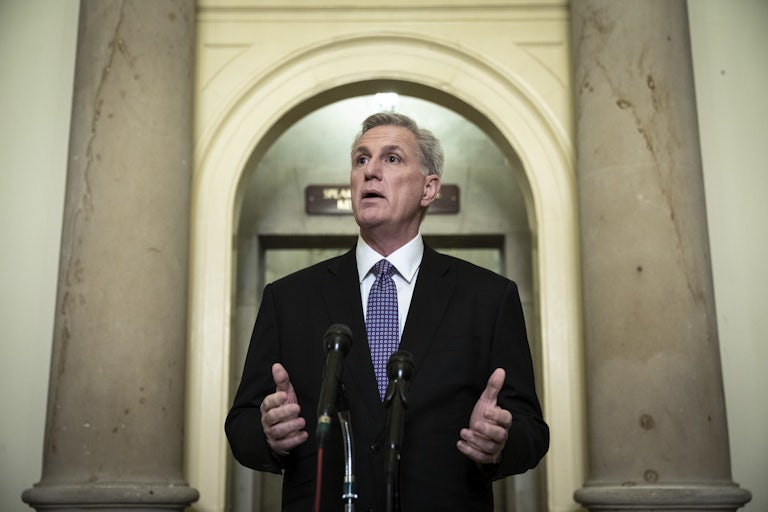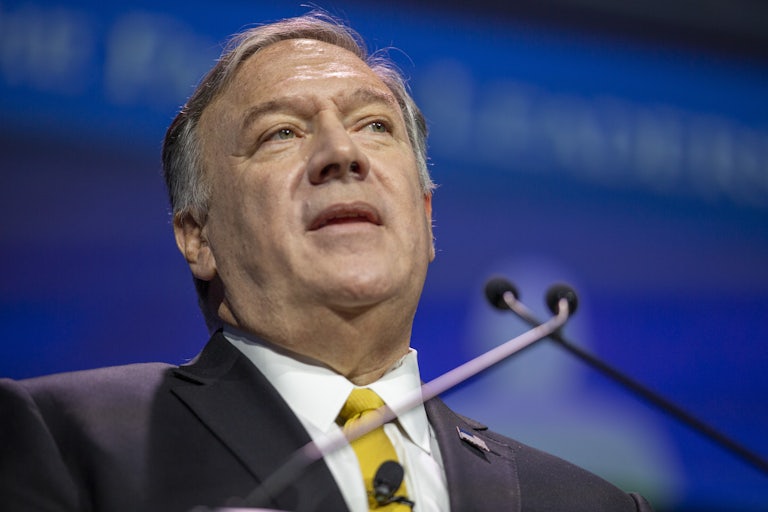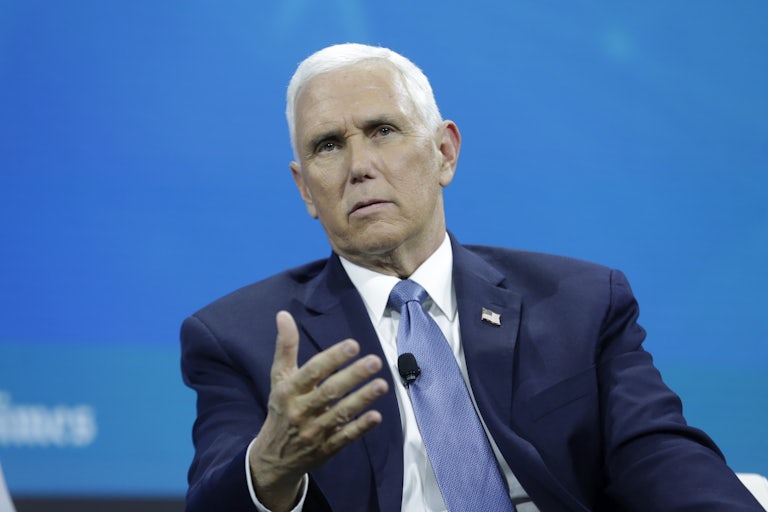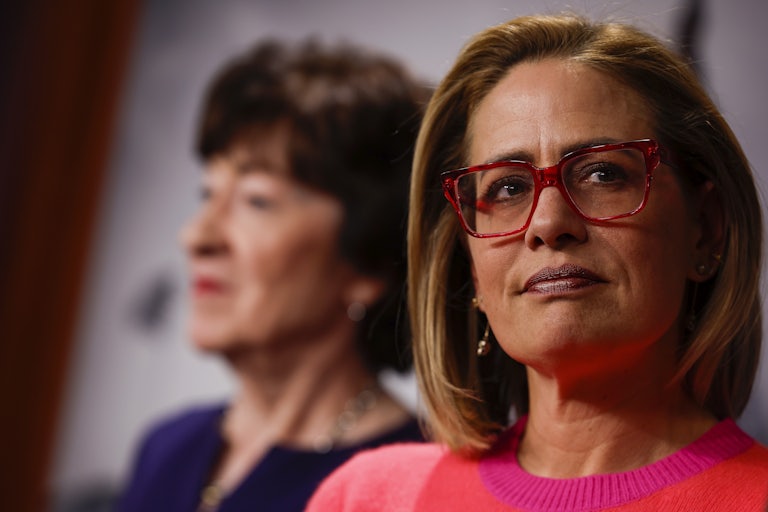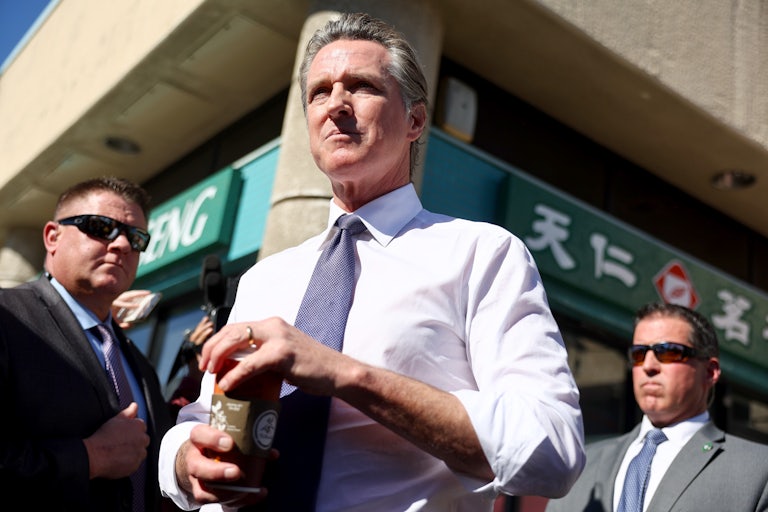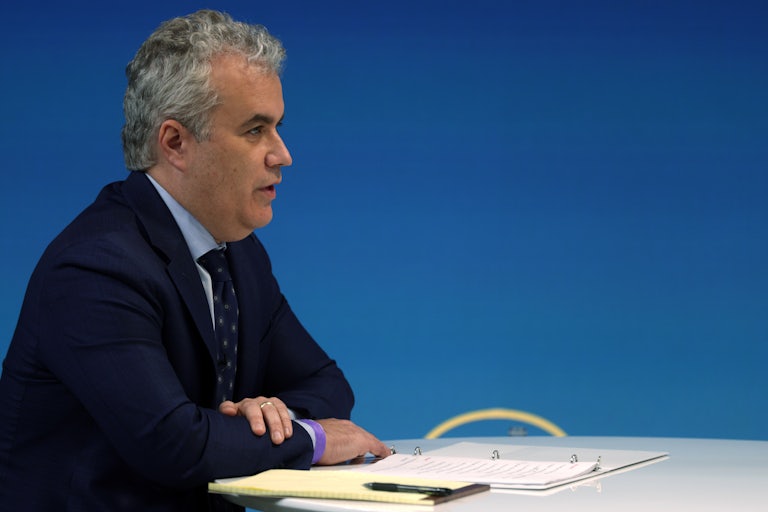Trump’s Facebook and Instagram Accounts Will Be Reinstated, Meta Announces
Trump will be getting his accounts back two years after he was banned for inciting violence on January 6.
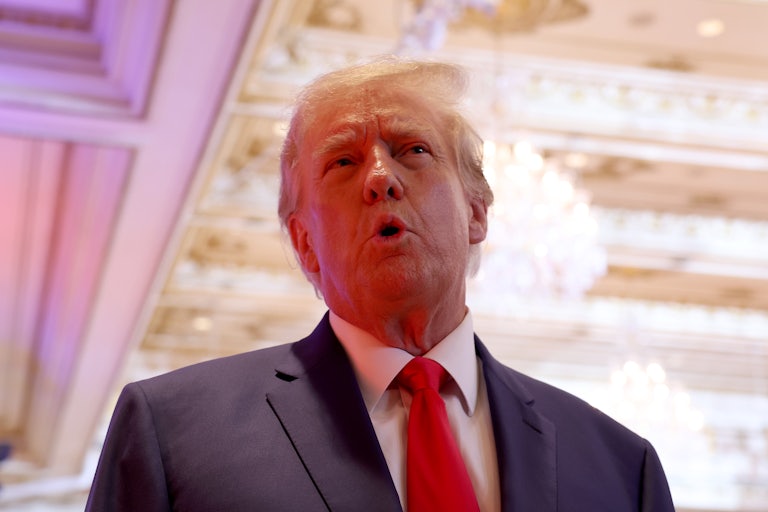
Donald Trump will be reinstated on Facebook and Instagram in the coming weeks, after a two-year suspension, parent company Meta announced Wednesday.
The former president was banned from the social media platforms following the January 6 insurrection, over accusations that his posts helped foment the violence in Washington, D.C., that day.
“The public should be able to hear what politicians are saying so they can make informed choices,” Meta President of Global Affairs Nick Clegg said in a statement explaining the decision to allow Trump back online.
“We’ve put new guardrails in place to deter repeat offenses.”
One of those guardrails is Facebook’s independent Oversight Board, a panel of 20 people that helps with content moderation. The board upheld Trump’s initial suspension from Facebook but switched it from indefinite to two years long.
In theory, Trump will be held to the same standards as every other Facebook user when it comes to what he shares on the platform: Content is removed if it causes public harm. But if a Trump post qualifies as “newsworthy”—meaning Meta deems it provides more to public interest than causes harm—it could be left up.
Trump’s reinstatement means that he will be able to resume using Facebook to fundraise for his 2024 presidential campaign.
Meta’s decision to let Trump back on comes a few months after Elon Musk let the former leader back on Twitter. Prior to his suspension on Twitter, Facebook, and Instagram, Trump had gotten in trouble multiple times for sharing misinformation.
Trump has yet to post on Twitter since being allowed back on and has stuck to his Truth Social platform instead. But he is reportedly planning a grand reentry to his once favorite social network.
Trump has 34 million followers on Facebook and 23 million followers on Instagram, and he has previously spent millions on Facebook ads. Many experts worry that his being allowed back on social media will increase the spread of misinformation, particularly as the United States gears up for the 2024 election cycle.

